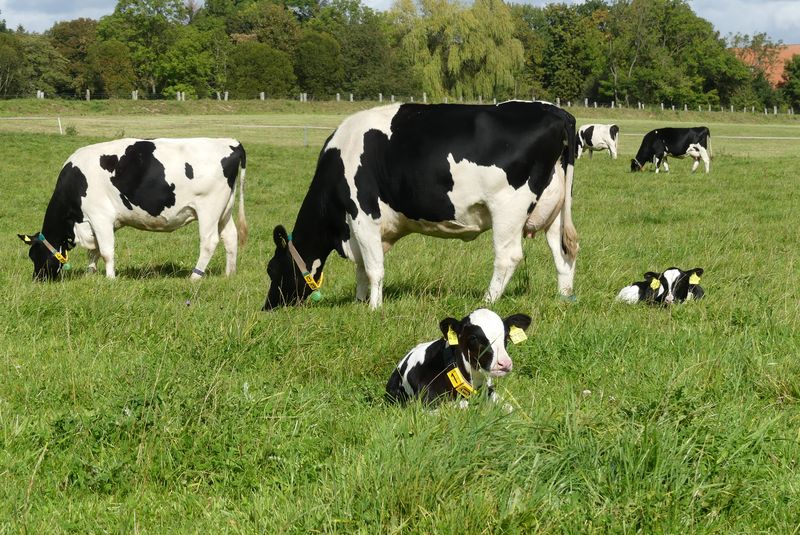Since May 2021, the Federal Ministry of Food and Agriculture (BMEL) has been funding the joint project „InnoRind – sustainable cattle farming in Germany taking into account animal welfare, environmental impacts and social acceptance“. The focus is on the rearing of calves and young cattle and the keeping of finishing and dairy cattle. The aim is to first determine the status quo of German cattle farming in order to identify potential for improvement based on this and to plan the implementation of improvements.
The Germany-wide innovation network is coordinated by the Christian-Albrechts-Universität zu Kiel (CAU). Ten project partners are involved, including the two Thünen Institutes for Organic Agriculture and for Farm Management. In addition, ten experimental farms are involved, which largely represent the main regions of cattle farming in Germany.
The main topics are, among others, cow-bound calf rearing, in which the calves are not separated from the cows. New possibilities for marketing purebred male calves are also on the agenda. On specialised dairy farms, rearing options are limited, and as demand for beef declines, finishing farms prefer calves from breeds whose breeding is more focused on beef performance traits. This results in lower revenues for purebred calves from dairy breeds.
In a subsequent step, the approaches developed in the network are to be tested on the experimental farms so that they can then be implemented directly by farms.
On the Thünen-side, there are two Institutes involved: On the one hand, the Thünen Institute of Organic Farming is testing innovative calf rearing concepts on the institute's own experimental farm in Wulmenau and, on the other hand, is developing practical, preventive management concepts to improve animal welfare in practical cattle farming. In the project, the Thünen Institute of Farm Economics carries out the economic analysis for all experimental settings. First, the status quo (reference) is determined and then compared with the different trial variants.









